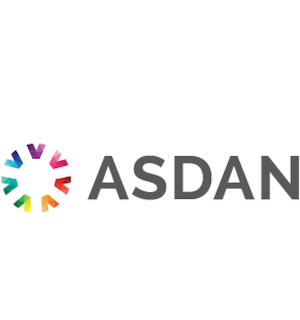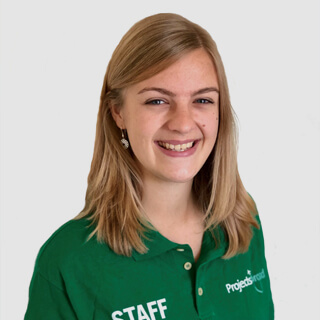After my first year of medical school, I knew I wanted to do a volunteer project abroad, but I wasn’t sure where to go or how I would go about it. Then, at my school, one of our faculty advisors told us about Projects Abroad and how they have a programme in Tanzania that aligned directly with my goals for a volunteer project. These goals were working at a local hospital, leading local outreach medical clinics, and getting to experience culture and learn about diseases endemic to the region. Once we arrived in Tanzania, I couldn’t have been more satisfied with my decision to volunteer with Projects Abroad.
My Medicine Elective placement
Instead of staying with a host family, we stayed at a local budget lodge, due to our group being made up of four students and three faculty members from my medical school. We worked in a government-owned hospital in Moshi, which was about a five-minute drive from our lodge.
What I loved so much about our programme was how organised it was. On our first day, we were given a folder with our schedule, emergency contact information, and local information about our placement. During our first day at the hospital, our Project Manager brought us to meet the head doctor and we were introduced to critical staff members and the doctors we would be working with.
Each morning, we were picked up and driven to the hospital, where we were able to assist the doctors with simple procedures, observe surgeries, take blood pressure and vital signs, and go on rounds with physicians in the different wards. I got to watch two C-sections on my very first day at the hospital!
During our stay, we could always count on the fact that we were safe and secure. We were told where we would be picked up, our Volunteer Coordinator would meet us, and we would travel together to our next destination.
What I also enjoyed about our hospital placement was how flexible it was. We could go to whichever wards we wanted to and the Projects Abroad staff made sure we were exposed to all the departments in the hospital. During our time there, we saw the male and female wards, the labour ward, the paediatric ward, as well as the laboratories, pharmacy, and outpatient rooms.
In the afternoons, we would either go back to the hospital or have a culture class back at the Projects Abroad office. It was great having the Projects Abroad office as a central location where we could meet with other volunteers and have group discussions. At the office, we would have tea and snacks and have our lesson for the day.
Over the three weeks I was there, we received lectures on HIV and AIDS in Tanzania, had a Swahili lesson, took part in discussions about healthcare in Tanzania and maternal-foetal health in Africa, and we got a chance to meet with Tanzanian medical students and learn about their experiences. On our last night, we even had a cooking class in the office kitchen!
Medical outreaches in the community
On the days we weren’t in the hospital, we led small outreach programmes in the local communities. The Projects Abroad staff had all the medical supplies, including medications and blood pressure cuffs. They also have partnerships with various hospitals, so we always had a doctor, several nurses, and other medical officers present with us throughout the day.
Something I also appreciated about the programme was how the volunteers were always accounted for. We were always brought packed lunches on days when we were outside the entire day, and we always had the Volunteer Coordinator and/or Project Manager with us, so we always felt safe. Our costs for the programme included every meal, including dinner out to restaurants, as well as transportation and all of our outings.
The community outreaches were a chance for us to really work one-on-one with patients. Because we weren’t in a hospital shadowing a doctor, it was up to us as medical students to organise patients, take blood pressure and vital signs, and even do finger sticks for rapid HIV and malaria tests. I thoroughly enjoyed these outreaches because they allowed us to have hands-on experience examining patients with a little more autonomy than at the hospital.
My free time
On the weekends, we got to travel around Tanzania and see the beautiful countryside as well as other nearby cities. We toured local markets, hiked to a waterfall in Materuni village, and got to make fresh coffee from coffee plants. We also hiked around the base of Mt Kilimanjaro, went to craft shops and markets, and had a day-long safari at Tarangire National Park.
While our schedule was well-organised and structured, the Projects Abroad staff were flexible with our preferences and we were able to move things around if we wanted more free time to explore or time to shop in the local markets.
I can’t stress enough how safe I felt the entire time in Tanzania. If we wanted to go out on the weekends, our coordinators would either accompany us to make sure we got there safely or call cars for us to ensure that we got to and from our destination. Our Project Manager even took us to a local nail salon so that we could get matching manicures with her!
My overall experience
I really felt as though the Projects Abroad staff went above and beyond to make sure we took advantage of every opportunity in Tanzania. I wasn’t expecting to make as great of friends as I did while in Moshi, and the experience was so positive that I am planning to take a trip back for more medical volunteering in the future. I couldn’t have had a better experience volunteering with Projects Abroad!

This is a personal account of one volunteer’s experience on the project and is a snapshot in time. Your experience may be different, as our projects are constantly adapting to local needs and building on accomplishments. Seasonal weather changes can also have a big impact. To find out more about what you can expect from this project we encourage you to speak to one of our friendly staff.
Are you interested in joining this project?
If so, one of our experts can help.
Contact Us on:
I nostri accreditamenti



















